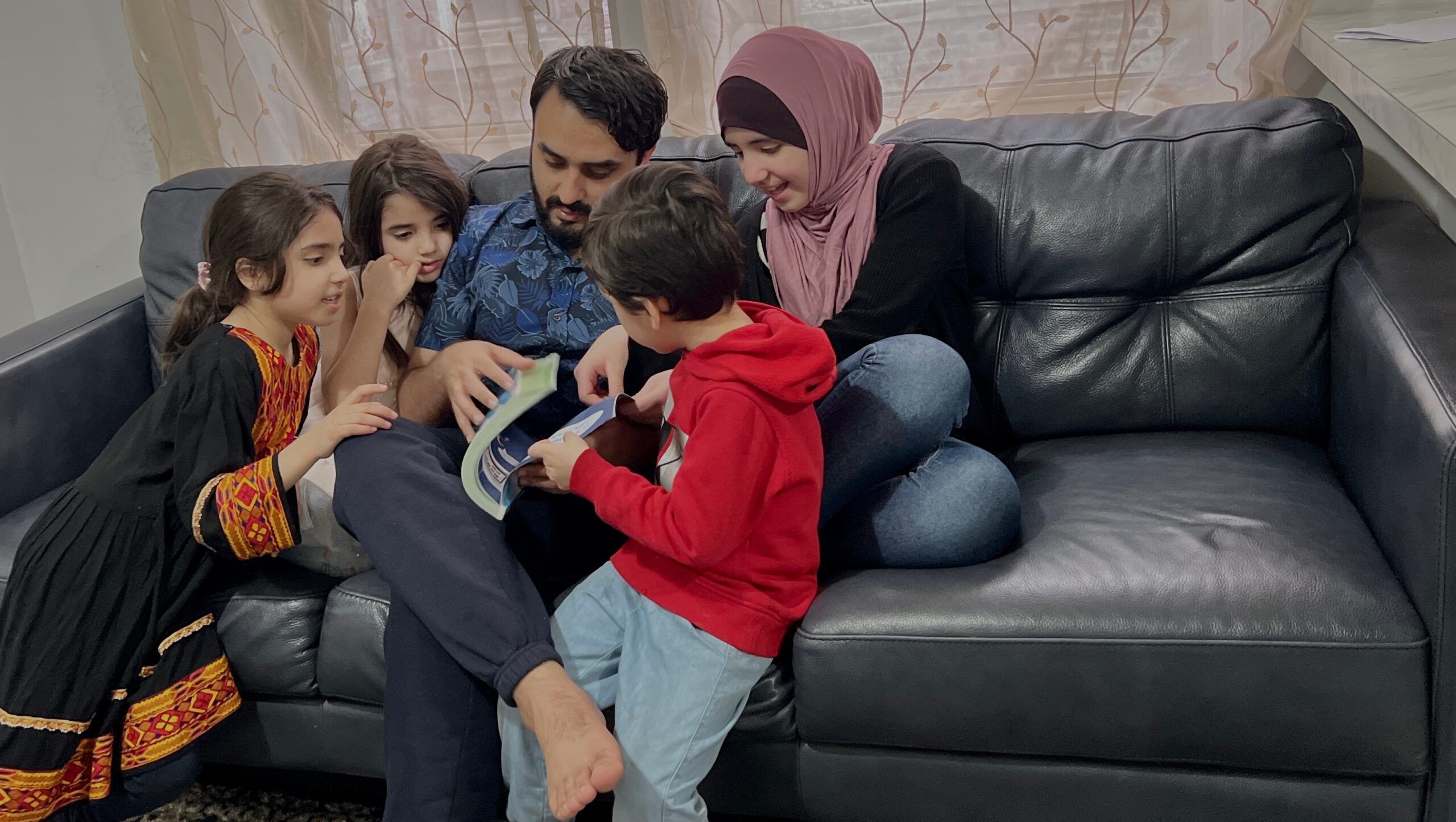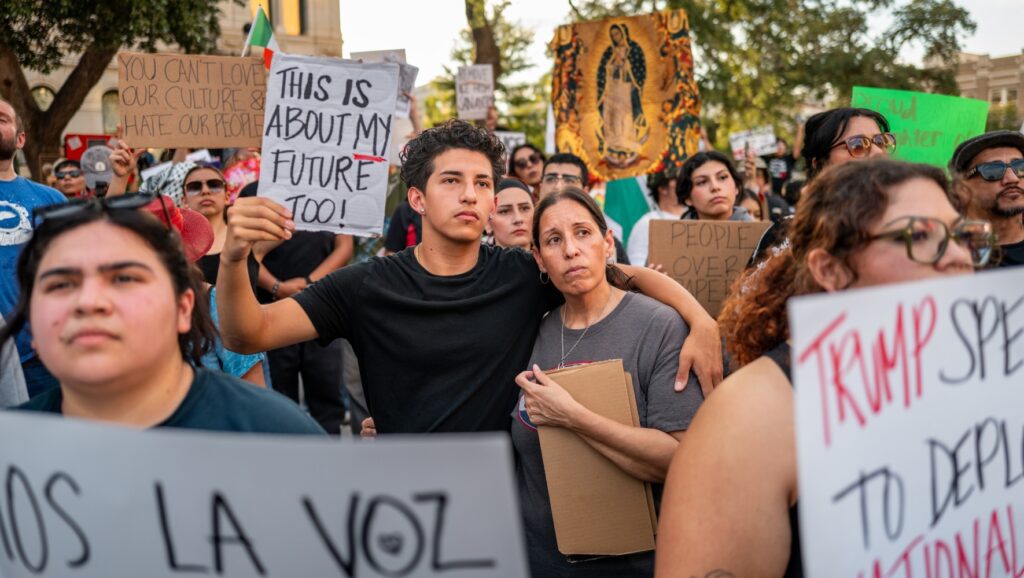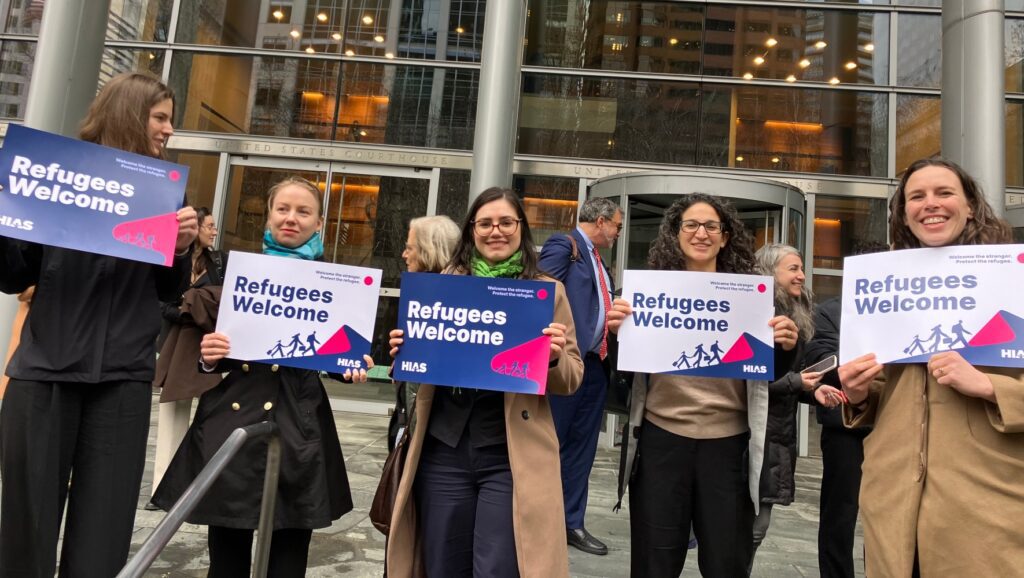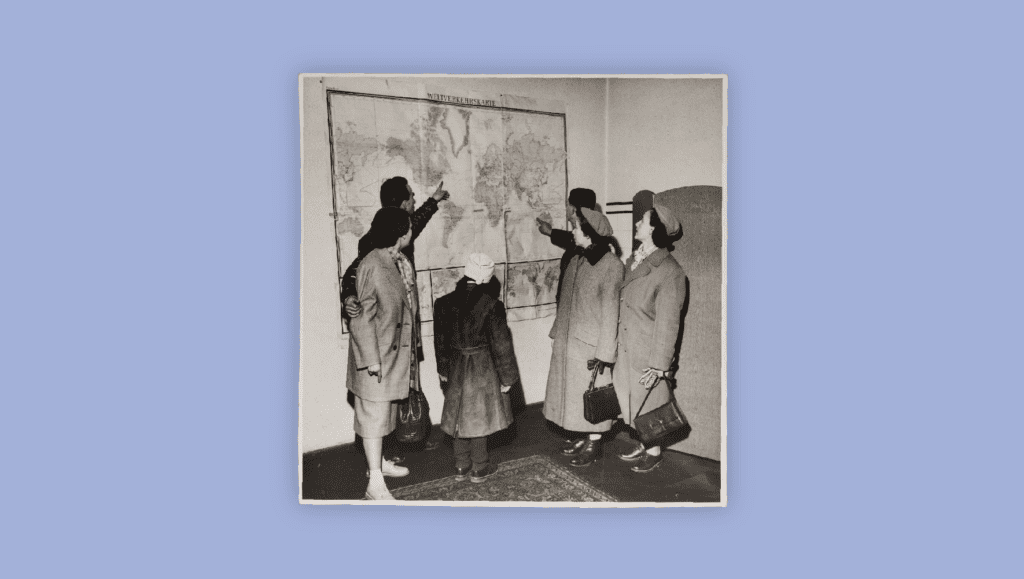
As a young man growing up in Afghanistan, in the years following the U.S. invasion in 2001, Mohib* was eager to get involved in his country’s reconstruction.
“I wanted my country to be a part of the international community — a competitor on the world stage,” he said. “I supported the objectives of the United States.”
A fluent English speaker, Mohib embarked on a career in a range of diplomatic and humanitarian roles, culminating in a stint working with the U.S. embassy. He married, had five children, and lived an ordinary life in Kabul. When the Afghan government fell to the Taliban in August 2021, Mohib, like many others who had assisted the American war effort, prepared to be airlifted from the country.
“The U.S. embassy told me that I could only flee with my immediate family, not my parents and younger sisters,” he said. “But they also said that [my family] could be evacuated later.”
Mohib and his immediate family, armed with legal residency, settled in Philadelphia. As they adjusted to a new life thousands of miles from home, he began the arduous process of bringing his parents and siblings, who had fled to Pakistan, to the United States as refugees. Mohib worked with HIAS PA, a HIAS resettlement partner in Philadelphia, to assist his family with their paperwork.
“All refugees being resettled in the U.S. go through a rigorous and complex vetting process, which can take up to a few years in some cases,” said Lucy Rabbaa, director of social services at HIAS PA.
In late 2024, after three years of waiting — a period in which they were forced to relocate within Pakistan five times — Mohib’s family received the news that they would be admitted to the United States on November 5. But before their trip, a routine tuberculosis exam for Mohib’s father turned up inconclusive results. In the end, the results were negative. But the hiccup meant that the family’s flight to America was postponed until February 9, 2025.
The three-month delay proved pivotal. On his first day in office, President Trump — elected by American voters the same day Mohib’s family was first scheduled to arrive in the U.S. — suspended refugee resettlement. That week, the Pakistani government issued a directive ordering the deportation of Afghans, like Mohib’s family, awaiting resettlement to a third country. The deadline for their removal is Monday, March 31.
The twinned actions have put the family in an impossible position. They can remain in Pakistan illegally, where they risk forcible deportation to Afghanistan. Or they can voluntarily return home, where their association with a former U.S. Embassy employee would make them a target for the Taliban, al Qaeda, ISIS, or other hostile groups.
“It isn’t that I believe that my family would be killed if they return to Afghanistan,” Mohib said. “It is a certainty.”
“It isn’t that I believe that my family would be killed if they return to Afghanistan,” Mohib said. “It is a certainty.”Mohib
“When the U.S. Needed Us, We Were Allies”
Mohib’s story is tragic — but it is by no means unique. Hundreds of thousands of Afghans worked with the United States during its 20-year war in the country, serving as interpreters, diplomats, contractors, security personnel, and many other functions, often at enormous personal risk. Following the fall of Kabul in August 2021, the Biden administration admitted over 100,000 Afghans on Special Immigrant Visas (SIVs), permitting them to live and work in the United States. Many of those who remained behind, like Mohib’s parents and siblings, sought resettlement in the U.S. as refugees.
The suspension of USRAP has snatched away the joyful family reunion that Mohib and his family had worked for. For a person who dedicated his career to helping the American war effort, this represents a betrayal.
“When the U.S. needed us, we were allies,” he said. “And now that they don’t need us anymore, we’re no longer allies.”
The Trump administration is reportedly considering issuing an executive order, more expansive than a similar one it approved during the president’s first term, that would place restrictions on or outright prohibit residents of 43 countries from traveling to the United States. One of the countries on the list is Afghanistan. Should this order be implemented, Mohib believes, any possibility that his parents might quickly arrive in the United States would be foreclosed.
“It would be the final nail in the coffin,” he said.
From his home in Philadelphia, Mohib waits, with growing fear and anxiety, for the unthinkable: his family’s forcible deportation to Afghanistan. Because of his involvement with the U.S. during the 20-year interregnum between Taliban power, he feels a terrible responsibility for the fate of his parents and siblings.
“I hope that day [of their return to Afghanistan] never arrives,” he said. “But if it does, I have thought seriously about returning there myself so I can die with them.”
*To protect Mohib’s anonymity, we are referring to him only by his first name.



